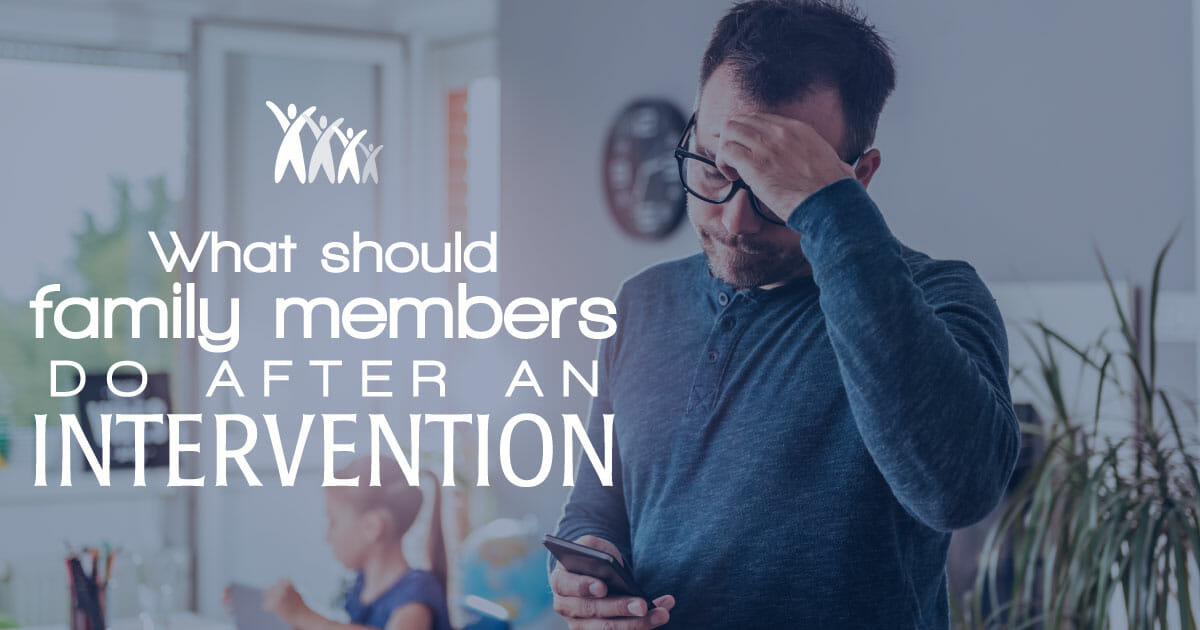Search by category, archive or keyword

Once a family decides to stage an intervention for a loved one struggling with addiction, it’s vital to have an actionable plan for the next steps. Some families find themselves caught up in planning and preparing for an intervention while they fail to think of the next steps.
When families work with a professional interventionist such as one from Family First Intervention, they receive professional assistance all the way from planning the intervention through formal treatment and into aftercare.
In this blog, we’ll look at the following topics:
Building a Plan for Recovery
When the time comes to prepare for an intervention, the interventionist and the family have more to plan than just the intervention itself. They will also need to formulate a plan for the addicted individual’s and the family’s recovery.
Basically, the family needs to be sure that after the intervention, their addicted loved one will be ready to enter rehab, and the family will be ready to address any negativity or roadblocks to recovery.
Addiction hits families very hard, and it’s vital for families of people struggling with addiction to know how to handle the intervention process and everything beyond. Family plays a pivotal role in any person’s recovery.
Preventing Enabling Behaviors
One concept that many family members of people struggling with addiction have difficulty addressing is enabling, or behaviors that help an addicted person maintain his or her habit.
Enabling can also refer to behaviors that prevent an addicted person from feeling the consequences of his or her addiction.
Some examples of enabling behaviors can include:
- Paying an addicted person’s bills because they spent all of their money on drugs. While some family members can reasonably help people struggling with addiction to stave off financial ruin, it’s important for the family to avoid assuming an addicted person’s adult responsibilities.
- Performing daily household chores for an addicted person, such as washing dishes or doing laundry. People struggling with addiction will often neglect things like this, and it’s important that they see the effects addiction is having on their lives.
- Making excuses or lying for an addicted person, such as contacting an employer with an excuse about why the addicted person missed work.
- Giving the addicted person money. It’s best to avoid giving cash directly to someone struggling with addiction. If there is a reasonable expense that the addicted person needs help paying, consider paying it directly. However, paying that bill may free up cash for drugs, so even this kind of help should be measured.
Addressing Family Trauma
Some family members may fail to recognize or completely deny their culpability in a loved one’s substance abuse. While they may not have forced their loved one to start taking drugs, they can easily influence addictive behaviors due to psychological trauma from the past, familial issues, and conflicts between loved ones.

A professional interventionist will work with a family to address these issues so they can overcome conflicts in constructive ways. In many cases, while an addicted person attends rehab, his or her family may enter counseling and can even participate in family counseling sessions at the loved one’s rehab center.
A professional interventionist will help families uncover the underlying stressors in the family that may have contributed to the addiction in question. Every addiction case is different, and every family will have different issues and traumas to work out. But a professional interventionist will help build a solid plan for recovery that includes the whole family.
The Family First Intervention Difference
Our professional interventionists travel all over the country to help families handle the intervention process. Our interventionists also help families acknowledge their roles to play in recovery and help facilitate constructive discussions.
Planning an intervention is certainly important, but this alone is typically not enough to encourage a person struggling with addiction to enter rehab. It’s imperative that families create extensive, comprehensive plans for handling the rehabilitation process and prepare for recovery.
Contact Family First Intervention today to get started with the recovery process if your loved one is battling an addiction. One of the most critical factors in treating any addiction is time. The longer an addiction continues, the greater the damage it will cause.
The sooner a person enters treatment, the better his or her chances will be to achieve lifelong sobriety afterward. Family First Intervention can help you create a strategy that will help the whole family overcome the damage of addiction.
Understanding Addiction and How the Ego Plays a Role in It Will Support a Successful Recovery Process
An intervention is not about how to control the substance user; it is about how to let go of believing you can.
“The most formidable challenge we professionals face is families not accepting our suggested solutions. Rather, they only hear us challenging theirs. Interventions are as much about families letting go of old ideas as they are about being open to new ones. Before a family can do something about the problem, they must stop allowing the problem to persist. These same thoughts and principles apply to your loved one in need of help.”
Mike Loverde, MHS, CIP




